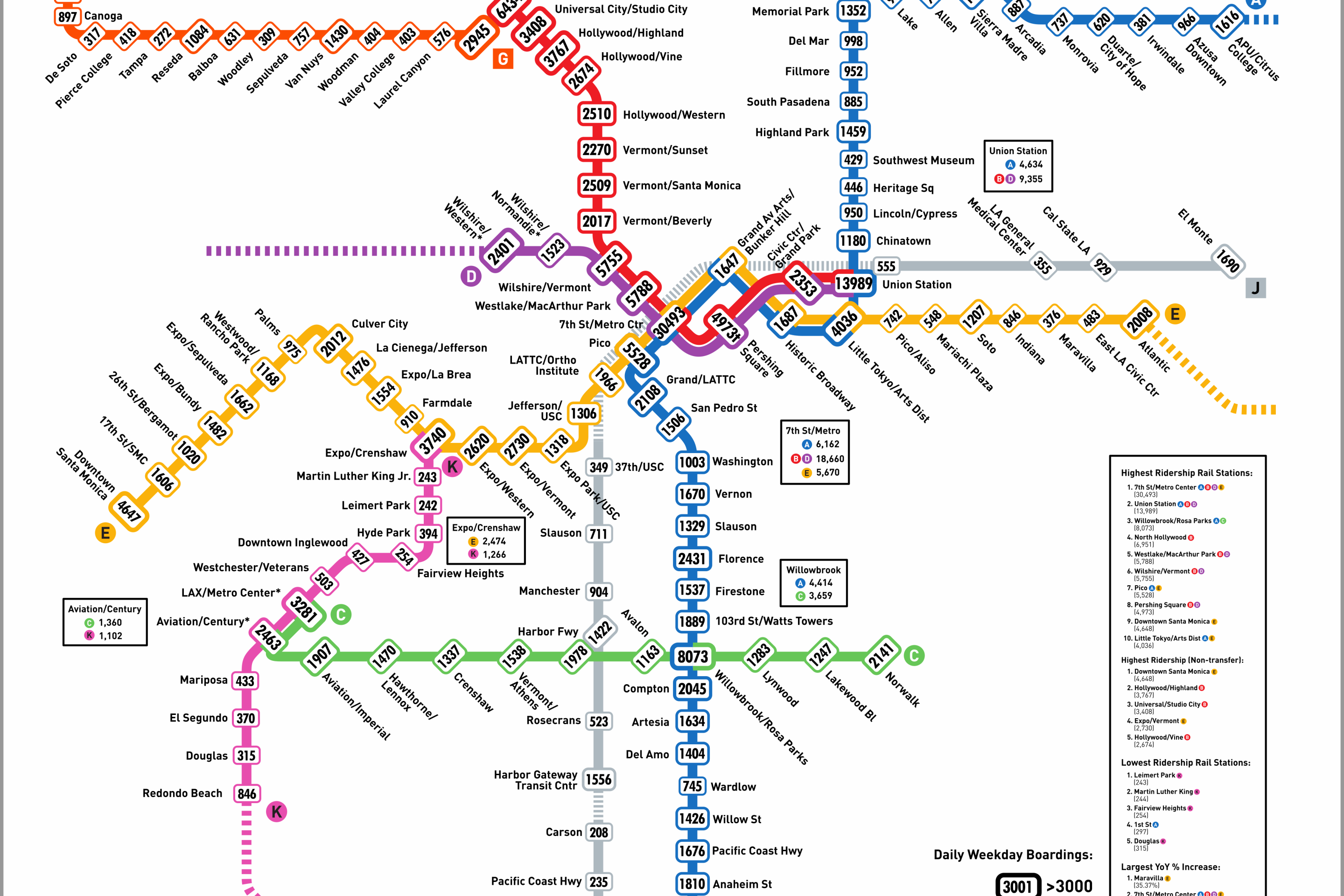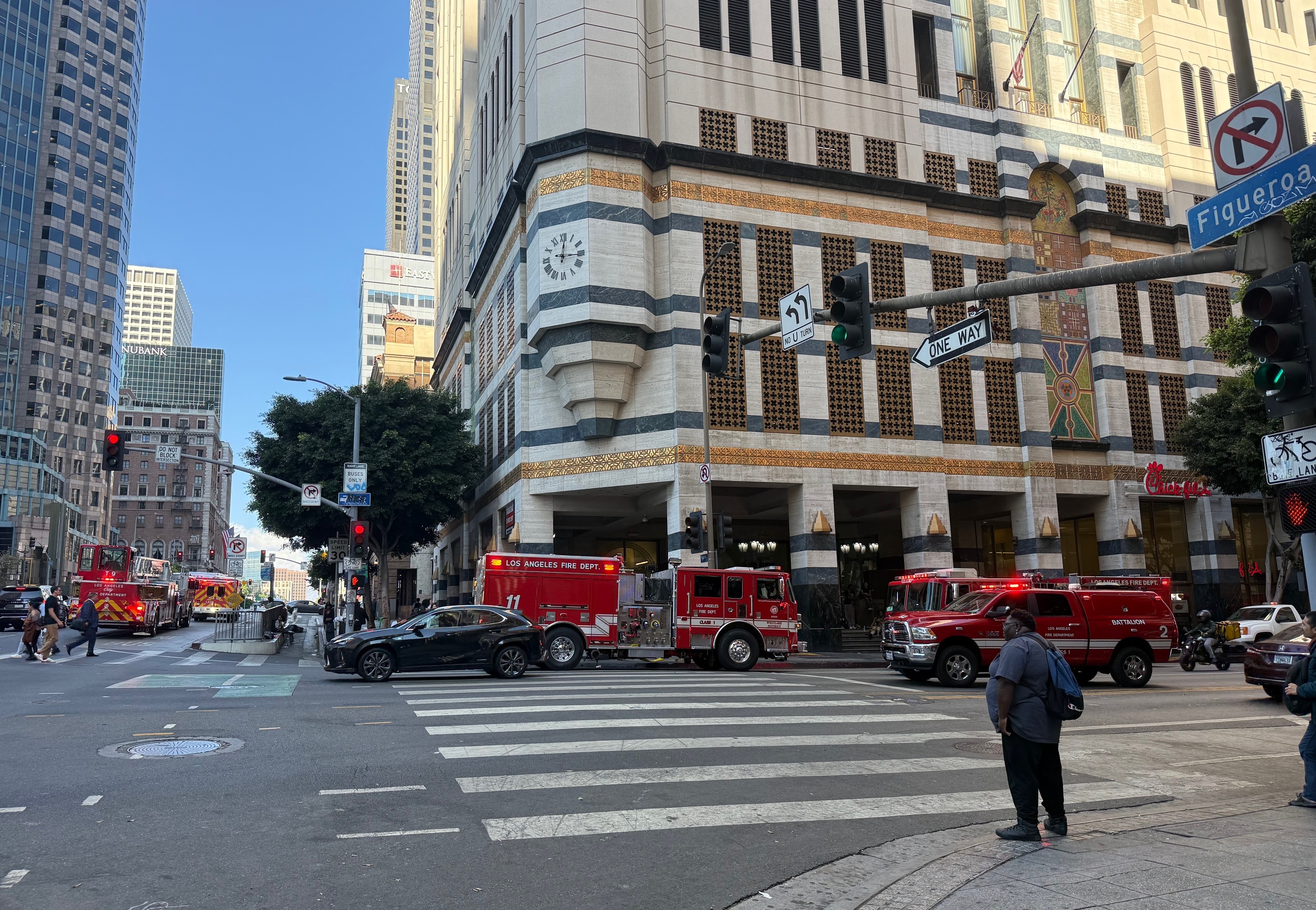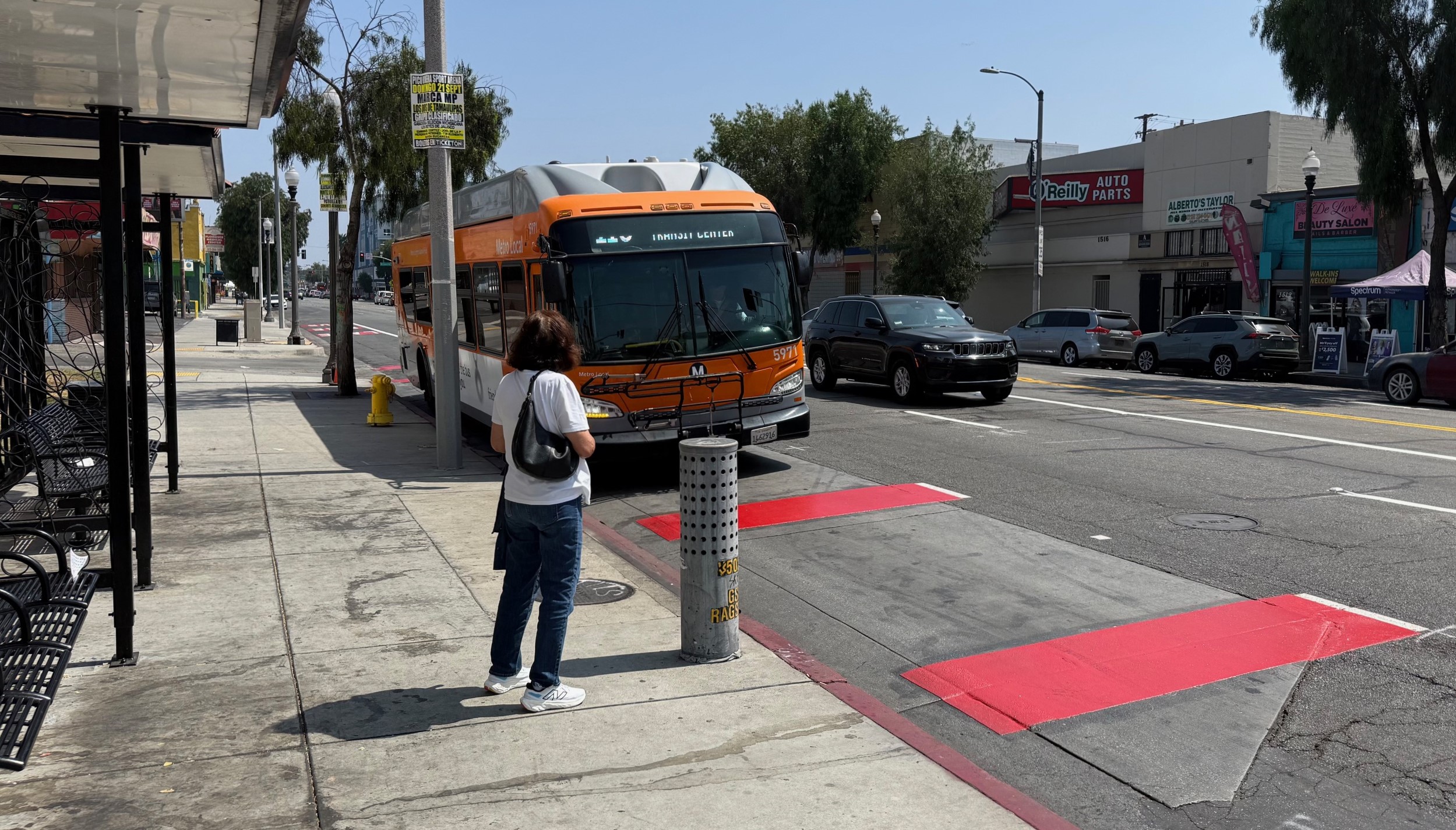Asm. Mike Feuer and Boardmember Richard Katz Chat With the Press After Tax Proposal Passes
After hours of debate, the Metro Board passed a virtually unchanged proposal to add a half cent sales tax increase, dedicated to a specific project list, to the fall ballot. Only Los Angeles County Supervisor Mike Antonovich and Duarte City Councilman John Fasana voted against the proposal, with San Gabriel Valley's Gloria Molina abstaining. The rest of the Board voted in the affirmative, except Don Knabe who was celebrating the birth of his grandson.
Assuming the state legislature and County Board of Supervisors approve the plan by August 8, voters will have their chance to "vote to tax themselves" with the funds going straight to Metro for a pre-approved list of projects. The ballot proposition needs two-thirds support to pass in November.
Before the public could comment on the proposal, Board Chair Villaraigosa offered an amendment that would use operations funds to delay the fare increase planned for 2009 and freeze fares for seniors, students, and the disabled for another five years. He closed his speech with a plea for "the region to come together." While the Board may have come together in a strong show of support for the sales tax, there's still a lot of work to be done before the community comes together.
Because there were a lot of issues that were discussed, I'm going to break down the rest of the post by section to make it easy for readers to find what they're most interested in.
Two Amendments on Equity Issues Voted Down
Antonovich and Fasana each offered motions to correct what they deemed the "equity" issues with the proposal. Both argued that smaller municipalities were not getting their fair share so that West LA could get the Subway to the Sea. While each measure ultimately failed, each garnered the support of five Board Members illustrating the unhappiness that still exists with Metro's proposal.
Director Molina took the time to repeatedly ask any legislator who testified their views on "equity." When Assemblyman Mike Feuer, the state legislator who authored and is now promoting legislation in Sacramento that would allow the sales tax proposal to move forward, answered that he hadn't read the equity proposals and needed to confer with fellow legislators before answering; Molina chased him down as he left the podium and placed a copy in his hand.
Molina, who has been a lightning rod in the press on this issue pleaded that the San Gabriel Vally didn't deserve a second class rail system so that the Westside could have a first class one. Personally, I always thought the Gold Line was nice.
Zev Yaroslavsky, the County Supervisor for the Westside, listed some made up statistics to show that congestion isn't just created where people live, but also where they work. For example, the City of Santa Monica has a residential population of 86,000; but during the workday that number swells to a quarter of a million. While Yaroslavsky's math wasn't exact, his point was clear.
Villaraigosa also noted that when you look at the entire package, instead of just the rail projects, that there is a close correspondence between regional population and sales tax funds spent regionally.
LA City Councilman Bernard Parks also argued that equity concerns would also need to take into account transit dependency. People living in his Councilmanic District tend to not own cars so they need better transit to get to and from non-local destinations.
No Set Aside for Bicycle or Pedestrian Projects
During the public comment period, Green LA and the Los Angeles County Bike Coalition presented the rationale for having a set aside for bicycle and pedestrian projects in terms of what it means for a community to have complete streets with safe amenities for people who travel without a motor. Later, I presented the letter signed by myself and 200 of my closest friends asking for a 1% set aside for bicycle and pedestrian projects.
Unfortunately, the Board, for all its talk of equity, ignored our ask and continued its tunnel vision focus on transit and highways as the solution to LA's transportation woes. Apparently equity concerns don't apply unless you rely on a vehicle to get from point A to point B.
After Mayor Villaraigosa vowed that the City of Los Angeles would use some of its Local Return for bicycle and pedestrian projects, Ingrid Peterson closed her testimony asking the Mayor, "how much?" Villaraigosa ignored the question.
But the highlight of the bicycle-pedestrian portion of the meeting was Josef Bray-Ali, who brought his baby daughter to the meeting and briefly charmed the entire audience. Bray Ali said his piece and resisted using his daughter as a prop. Later, Director Fasana wouldn't be as constrained.
Bus Rider's Union Still Opposed
The Bus Rider's Union used their ten minutes of public comment to make clear their opposition to the plan as proposed. Calling the measure an "unmitigated environmental justice and civil rights disaster" the BRU noted the high amount of funds being spent on "greenhouse gas emitting highway widening projects."
While some people would look at Metro's proposal and see 20% of the funds being spent on buses and fares, the BRU sees 80% of the budget being wasted on rail and road projects. Unlike last month's meeting, the BRU was clearly the dominant group in the audience with bright yellow shirts crowding the first several middle rows. Whether their t-shirt power leads to defeating the proposition at the polls remains to be seen.
Highway Funding Increased Since Last Board Meeting
As expected, funding for highway expansion was increased from 15% of the budget at last month's Board Meeting to 20% at this one. Environmental groups joined the BRU in condemning this increase, but there was no movement by any Board Member to strip out the increase from the final proposal.
One new project that was particularly controversial is the I-710 Gap Closure project. The project would actually build a tunnel to add capacity to I-710. It's appearance as a funded project in this plan is strange because unlike every other funded project the environmental studies haven't been completed and a locally preferred alternative hasn't been chosen. The City of Pasadena, who has opposed the project for half a century, led a group of elected representatives questioning why the project was included in the final plan and if its inclusion is even legal.
No, the Legislature Can't Play with the Funding After the Voters Vote in the Fall
Supervisor Molina was also concerned that even if the voters decide to move forward with this proposal, that the state legislature would come back and change the project list in the authorizing legislation. Amazingly, Metro's legal counsel agreed. After a shocked Villaraigosa argued that they'd have to dissolve the entire MTA to do so; Mike Feuer strode up to the podium to set the record straight.
Speaking as both the author of the legislation and a lawyer, Feuer made clear that this is local money and the legislature can't overturn the will of the voters. The Board can still make changes to the project list after the fall, but only if a project goes under- or over budget.
Feuer actually showed a crack in his affable demeanor when he tossed his folder in frustration on the podium when returning to the podium to answer a question from Molina. Later when she commented that this has been a rough process, Feuer responded, "Every moment has been a piece of heaven."
The Five Amendments the Board Did Pass
In addition to Villaraigosa's fares stabilization amendment, there were four other changes to the final proposal.
Richard Katz put forward a motion that better funded the Expo Line Phase II Construction to the tune of nearly $350 million more funds. The motion passed without a dissenting vote.
Showing that parochialism isn't limited to regions within the County, the Board also passed motions requiring the allocation of funds to Metrolink to be spent within LA County and another requiring that all contractors who are paid with sales tax funds come from within the County.
But the most interesting change, which also passed by consent, allows CEO Roger Snoble to go to court to overturn efforts by the Los Angeles County Board of Supervisors if they attempt to hold up the sales tax proposal. I'm not sure what the grounds would be, but by giving Snoble this power the Board is sending a clear message to discontent Supervisors Molina, Antonovich and whoever else might be thinking of stonewalling the proposal that Metro is prepared to go around them if need be.
Photo: Damien Newton






